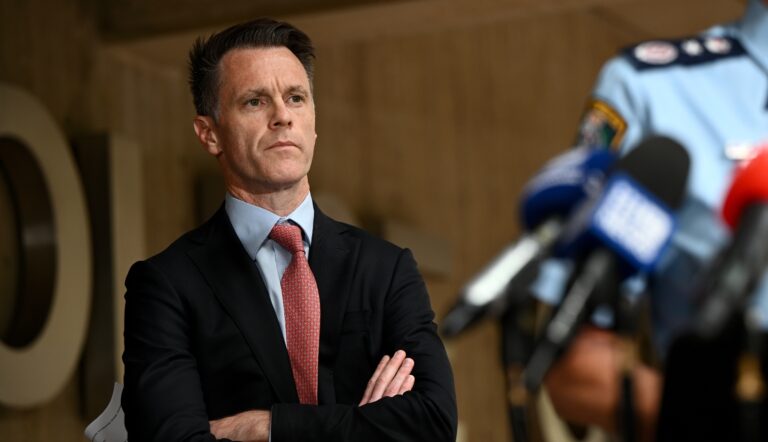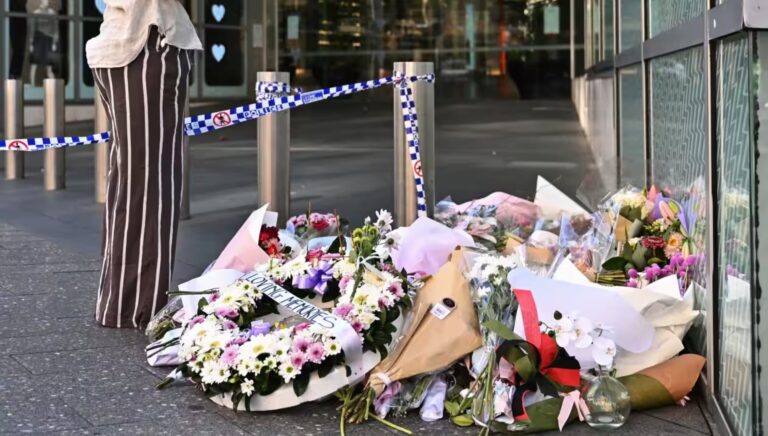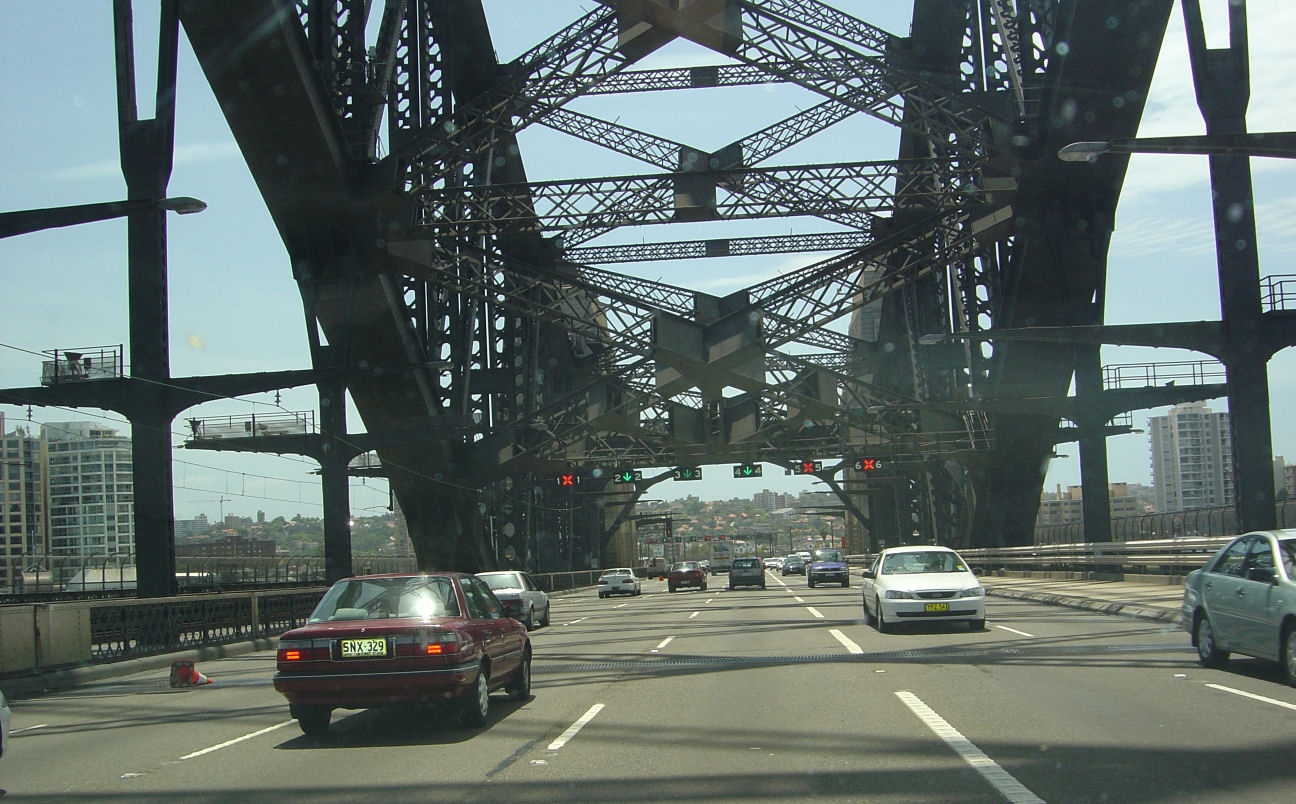
Selling NSW – Berejiklian style

BY WENDY BACON
Last week, NSW Premier Gladys Berejiklian told the Sydney Morning Herald that her government had taken the politics out of building things.
Her comment was designed to gloss over the obvious fact that this election is all about the politics of destroying and building things, especially the Sydney Football Stadium.
Before we return to the stadium, where Lendlease bulldozers are crushing as much of the structure as possible, let’s digress to some other things and start with buskers at Circular Quay. Late last year, the Berejiklian government quietly decided to contract out the licensing of buskers on Sydney’s foreshore to the world’s biggest real estate services company, CBRE.
Speed of privatisation alarming
Compared to the massive privatised WestConnex or the $730 million Sydney stadium project, this is small bikkies. But it’s a small routine outsourcing of a regulatory function that speaks volumes about the direction NSW is heading. City Hub tried to interview CBRE but as always occurs with contractors, staff have instructions to refer all journalists back to Property NSW.
A Property NSW spokesperson confirmed, “Property NSW recently appointed CBRE to provide property and facilities management in its precincts. As part of this process, CBRE will now manage the administration of busking licences. However, Property NSW retains all creative control. Entertainment, including busking, is integral to our vision for the Sydney Harbour Foreshore. The busking application process remains unchanged. So if nothing has changed, why did this regulatory function of govenrment need to be out sourced?
Balmain Greens MP Jamie Parker made representations on the issue in January and got much the same answer which left him concerned. “The privatisation of our city is escalating at an alarming rate. It seems no public space, even Circular Quay, is safe from this government’s privatisation agenda. The more we privatise these public spaces, the more the rights of the citizens and musicians who use them will be restricted,” said Parker.
A search on the NSW tender database revealed that in the last 15 months, CBRE has received $26 million to manage redevelopment projects at the Nepean, Maitland, Campbelltown, Griffith and Tweed hospitals. It is also being paid millions to reevaluate the assets of the Department of Justice, provide financial advice to the Department of Transport and manage the St James tunnels where homeless people sleep. The contracts illustrate the highly political but often hidden process through which the Berejiklian government is transferring control over public assets to private contractors.
Politics of Sydney Stadium knockdown
Back to the politics of the Sydney Stadium knockdown. At the instigation of Sydney Cricket and Sports Ground Trust ( SCSGT) Chair Tony Shepherd, Berejiklian issued a direction to INSW to undertake the Sydney stadium knockdown project last year.
The trust includes Katy Jones, the independently powerful partner of Harvey Norman who wants to develop the next door Entertainment Quarter into a more lucrative site of bars and apartments. Berejiklian constantly refers to INSW as “independent”. In fact, its board is dominated by private development interests and government appointed senior public sector executives. It includes no independent experts or community representatives. One of its directors sits on the board of a Lendlease company.
Private contractors were paid to develop a Stadium redevelopment concept. All that remained was for NSW Planning to bend to the will of its political masters and push the project through in record time. State Significant Infrastructure laws allow developers to get initial approval for demolition and a concept. This means that compliance with the environmental requirements for the EIS can be delayed until after demolition when the project is a fait accompli. Conditions of approval can be changed on application to the Department of Planning, as has already happened in the case of Planning.
Community objections shoved aside
This is a politics of planning which enables strong local government and community objections to be shoved aside. The INSW Stadium contract with Lendlease was negotiated before the Minister gave his approval for the simple purpose of getting the stadium down before the election.
Some facts emerged in the Local Democracy Matters’ unsuccessful legal action to have the Minister for Planning Anthony Roberts’ demolition approval declared invalid. As with all contracts, there are cancellation clauses. If Labor gets enough seats to form government on Saturday, it will cost only $1,000,000 to cancel the contract plus the value of the work done. A few days’ delay would cost $ 45,000 a day. Staying idle for a week might just as easily preserve public resources as waste them.
Labor Opposition Leader Michael Daley is adamant that he will sack the Trust Board and cancel the Stadium project if he scrambles into minority government – most likely with Greens and Independents support – next week. Exercising the cancellation option and refurbishing at a somewhat higher cost than an earlier secret planned budget of $18 million looks like a good option from the public’s point of view.
All of which just goes to show that Berejiklian’s decision to push ahead with demolition has everything to do with her politics of building things, which is to faithfully deliver to the likes of Lendlease and CBRE.
Contracts are not king
While there seem to be few limits to the LNP’s policy of selling NSW, Labor’s attitude is less clear. Back before it lost government in 2011, Labor embraced many neoliberal policies. For example, it began outsourcing public services, including TAFE, which turned into a rolling disaster of cutbacks under the LNP. Labor has now adopted an anti-privatisation message but it is not clear how far NSW Labor is prepared to go to reverse the outsourcing of services or transfer of public assets to private companies and rebuild the public sector.
More recently, we need to look no further than the massive tollway project WestConnex, 51% of which was sold to Transurban last year. Despite months of community campaigning to get NSW Labor to change its position, the Opposition has taken an extraordinarily weak line, arguing in vague terms that it would cost “billions and billions” to cancel the WestConnex stage 3 contract for a tunnel from St Peters to Haberfield. This is despite new evidence provided by Otus Intelligence Group satellite imagery, which shows that a greater swath of land around the Stages 1 and 2 tunnels has moved than predicted. Residents have sustained hundreds of thousands of dollars worth of damage, so far without compensation. The threat to old suburbs such as Camperdown, Annandale, Leichhardt, Newtown and Rozelle from Stage 3 tunnel from is much greater than acknowledged in the EIS. Disturbingly, this imaging technology is used elsewhere in the world for planning purposes. Air quality predictions are also turning out to be wrong.
In the face of these risks, why does NSW Labor refuse to even cost what it would take to renegotiate the WestConnex sale contract or question the approvals that are based on false evidence? It has not even committed to passing a law to filter stacks. What could be leading to such laggardly politics? Is it the corporate donations that keep flowing from the owner of WestConnex, Transurban to both the LNP and Labor? The undeniable truth is that Labor, as the LNP, is still heavily influenced by the hidden politics of lobbying and corporate donations.
Lendlease wins big contracts
The Sydney Stadium is not a big project for Lendlease. Indeed, it told City Hub that it had not posted news of the contract on its website because the profit margin was not big enough.
The company has a strong connection with the NSW LNP government through ex-Minister for Roads’ Duncan Gay’s Chief of Staff Jason De Sousa who exited from the Minister’s office in 2015 to take up the position of director of Lendlease major infrastructure projects. He also has experience as a lobbyist.
There have been some very big wins. In 2017, Macquarie Group put in an unsolicited bid to build the massive Martin Place metro station that will be named after the corporation as Macquarie Station. CBRE was paid nearly half a million to provide real estate advice to the Berejiklian government on the bid. Lendlease was awarded the contract to build it.
Lendlease was also awarded the contract for the new Darling Harbour Convention Centre, Barangaroo, including the Packer Casino contract, and the controversial massive North Sydney metro development that will be called Waterloo station. Lendlease and Macquarie have both donated handsomely to both major parties over the years.
Lendlease also holds the WestConnex Stage 3 $3 billion contract to build a tunnel between St Peters and Haberfield but this contract looks riskier by the day. Lendlease’s engineering division is already $500 million over budget on its unsolicited bid with Transurban to build the NorthConnex tollway. This loss is pulling Lendlease profits down so the company has announced it is planning to sell the division. It has budgeted $500 million for the wind-down but now the new satellite imagery has made the project even riskier. It is already months behind and preliminary geotechnical drilling is not finished. The international directors of Lendlease can’t be relishing another blowout.
So the NSW public doesn’t even know who will be building the projec that risks so much damage. Today, children and parents protested outside schools about their air pollution concerns from unfiltered stacks. In this context, Daley could have announced that if elected, he would sit down with Treasury NSW Planning, and RMS to negotiate a way to stop or at least minimise WestConnex damage. It may be difficult and costly, but there is no contract that a government can’t override in some way. In any case, NSW Labor is quite prepared to subsidise Transurban to the tune of billions with its expensive cashback scheme.
A government with fresh policies can intervene in major projects even if contracts are signed. For example, last year, a progressive council in London, Haringey Council cancelled a $2 billion housing contract with Lendlease The move was controversial but the Council decided that concerns about transferring assets from the public was sufficient to justify a financial cost.
Only in the infrastructure backwater of Berejiklian’s NSW, do contracts trump government policies.
Wendy Bacon was previously Professor of Journalism at UTS and is supporting the Greens in the 2019 NSW election. She blogs at wendybacon.com









